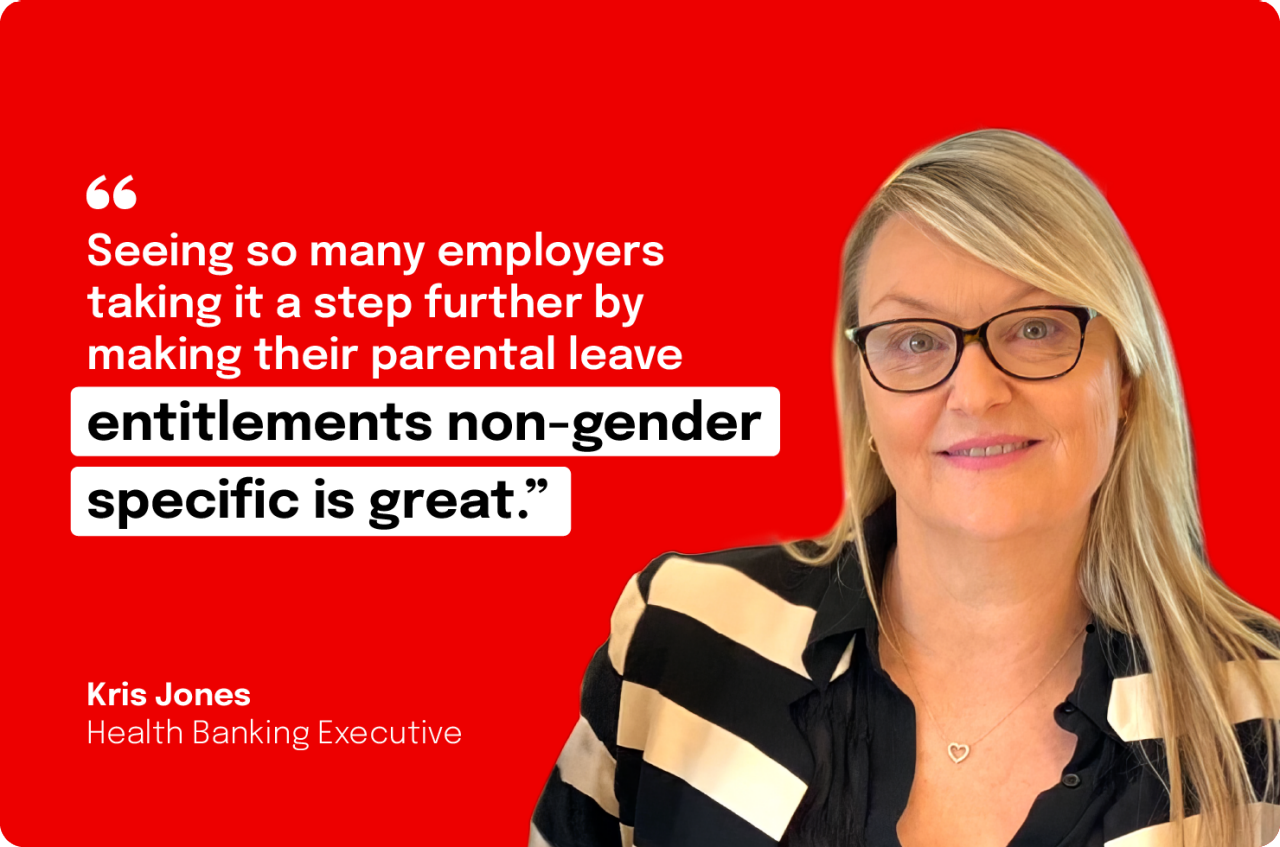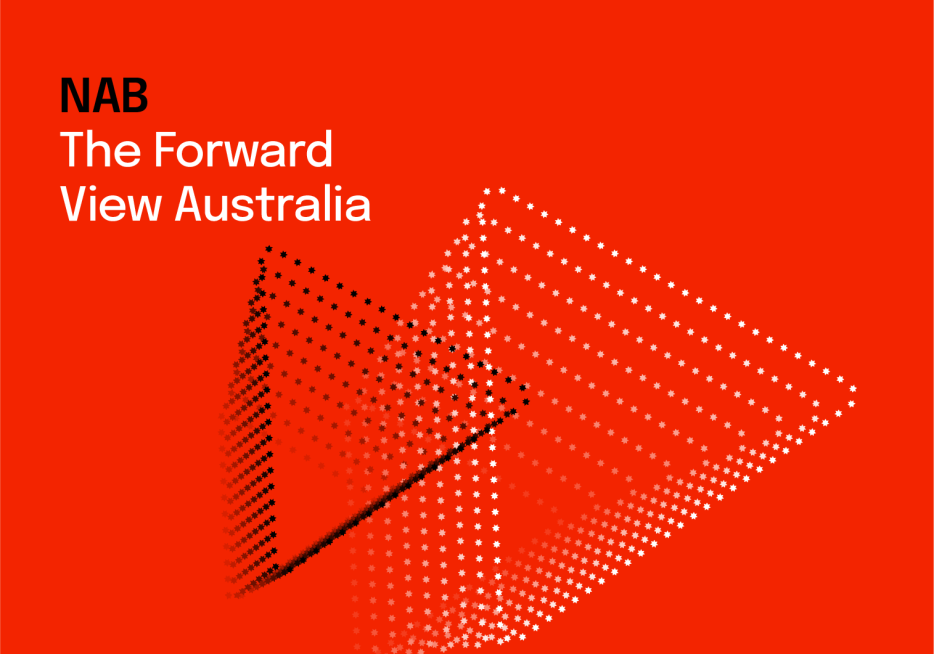28 August 2025
February 18, 2025
March Forward: NAB leaders on three decades of progress
This International Women’s Day is all about progress in gender equality. Seven NAB leaders look at the bold steps we’ve taken, and still need to take, in creating a more equal workforce for Australia’s women.
By Business View

Thirty years have passed since the global adoption of the Beijing Declaration and Platform for action for gender equality. It’s fitting, therefore, that International Women’s Day 2025 should centre around the theme of progress. Seven NAB leaders share their thoughts about the important strides we’ve taken towards greater equity and opportunity for women in the workplace since 1995 and the ways in which we can all continue to march forward.
Rachel Slade, Group Executive, Business and Private Banking
Around 2010, we started to see big businesses setting targets and quotas for women in leadership roles and on boards. It was a development that provoked mixed reactions at the time but holding organisations to account has proven to be a really important step. It prompted people to acknowledge that what we needed to focus on was fixing the environment, not fixing the women. There’s still work to be done – women comprise 36.9 per cent of all ASX300 directors, opens in new window but only 34 of those women are Chairs – but we wouldn’t have gotten to where we are without those targets. As a female leader, I try to focus on opening up more opportunities for women to rise to the top by not making assumptions about what they want and what they can do. That’s something that’s very easy to do, subconsciously and with no ill intent. Having caring responsibilities doesn’t preclude high achievers from wanting and being able to take on bigger responsibilities at work.
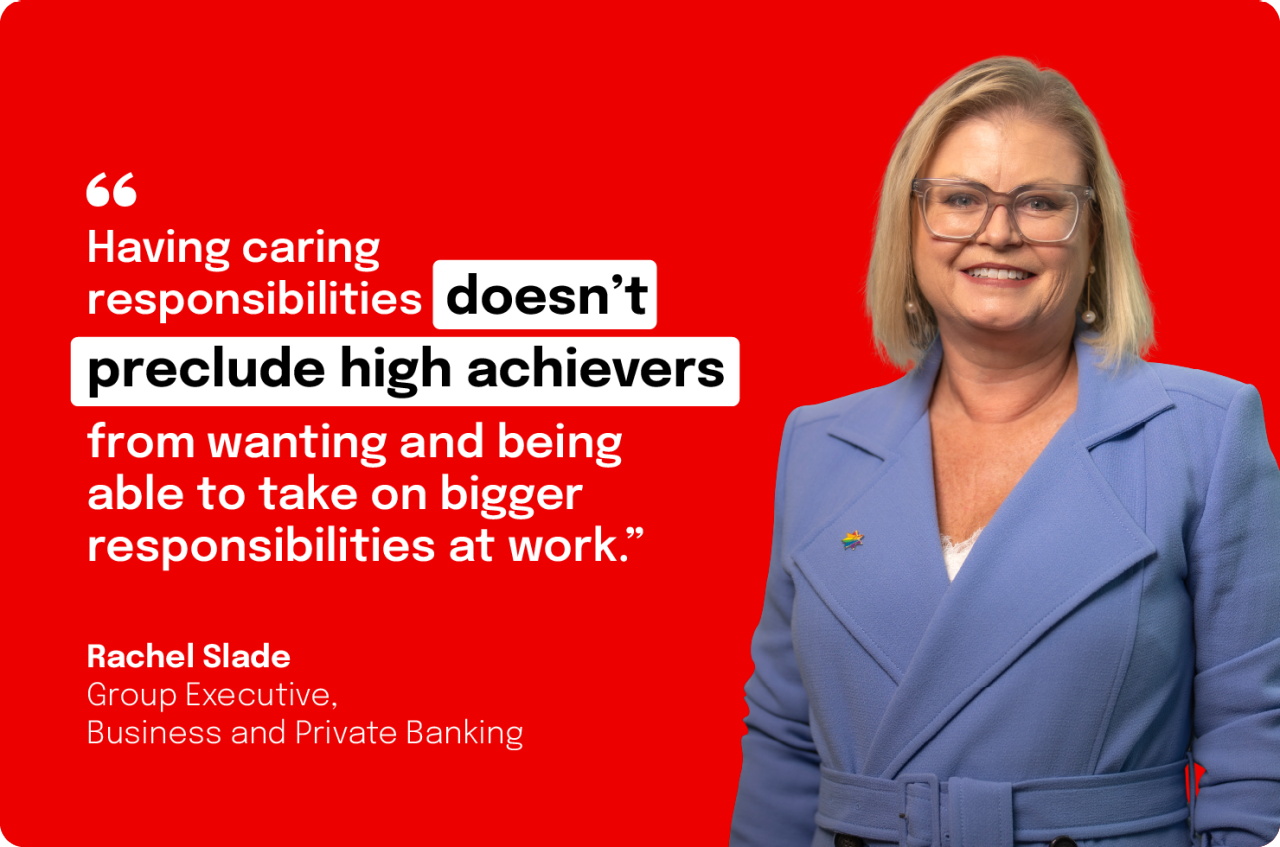
Julie Rynski, Executive, NAB Business Banking, Metro & Specialised
While true gender equality in the workforce may still be a way off, we’ve made heartening progress on multiple fronts over the past three decades. I’m proud to have been one of the many people advocating for, and supporting, positive change. Continuing to celebrate female success will help us keep moving in the right direction because we’ve seen how powerful showing younger and mid-career women the possibilities can be. When the wins cease to become remarkable, we’ll know we’ve really made a difference. The other upside of the gains we’ve achieved since 1995 is that, as things keep improving for women, they’ll keep improving for other marginalised groups too. A more level playing field helps everyone.
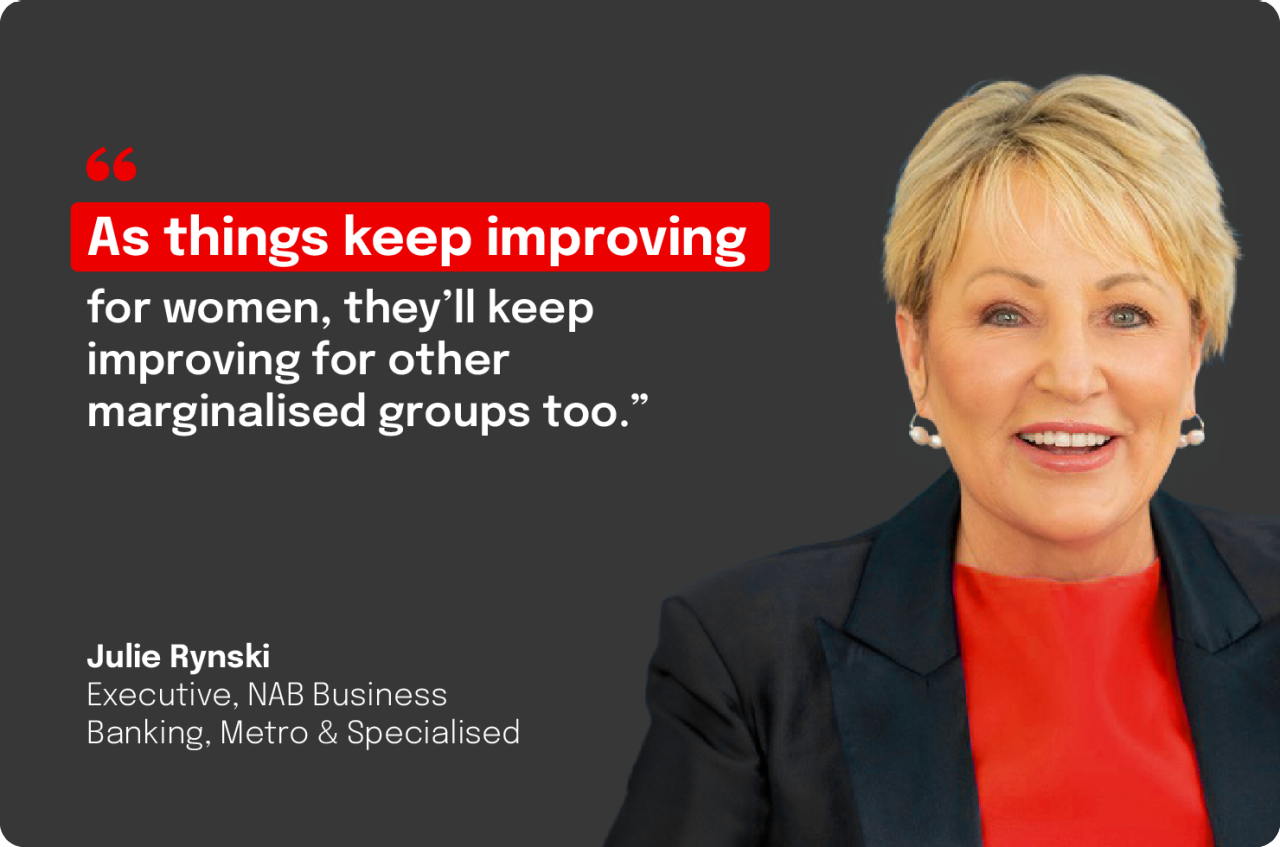
Krissie Jones, Executive, Business Direct and Small Business
Shared parental leave has had a transformative effect on the way our society views women’s participation in the workforce and, over the next couple of decades, we should see more progress in closing the longstanding pay, equity and super gaps. Investing in people’s career development will help us achieve those goals faster. As a leader, I’m committed to removing any barriers that may prevent the women on my team from progressing, including those women who are on maternity leave when opportunities arise. I was elevated into my first Executive leadership role three months after returning to work after the birth of my first child, by a boss who believed in me, so there is an element of ‘paying it forward’. The other thing I’m passionate about is boosting women’s ability to access capital to start their own businesses. That can open up a wealth of opportunities for them to strike out for themselves.
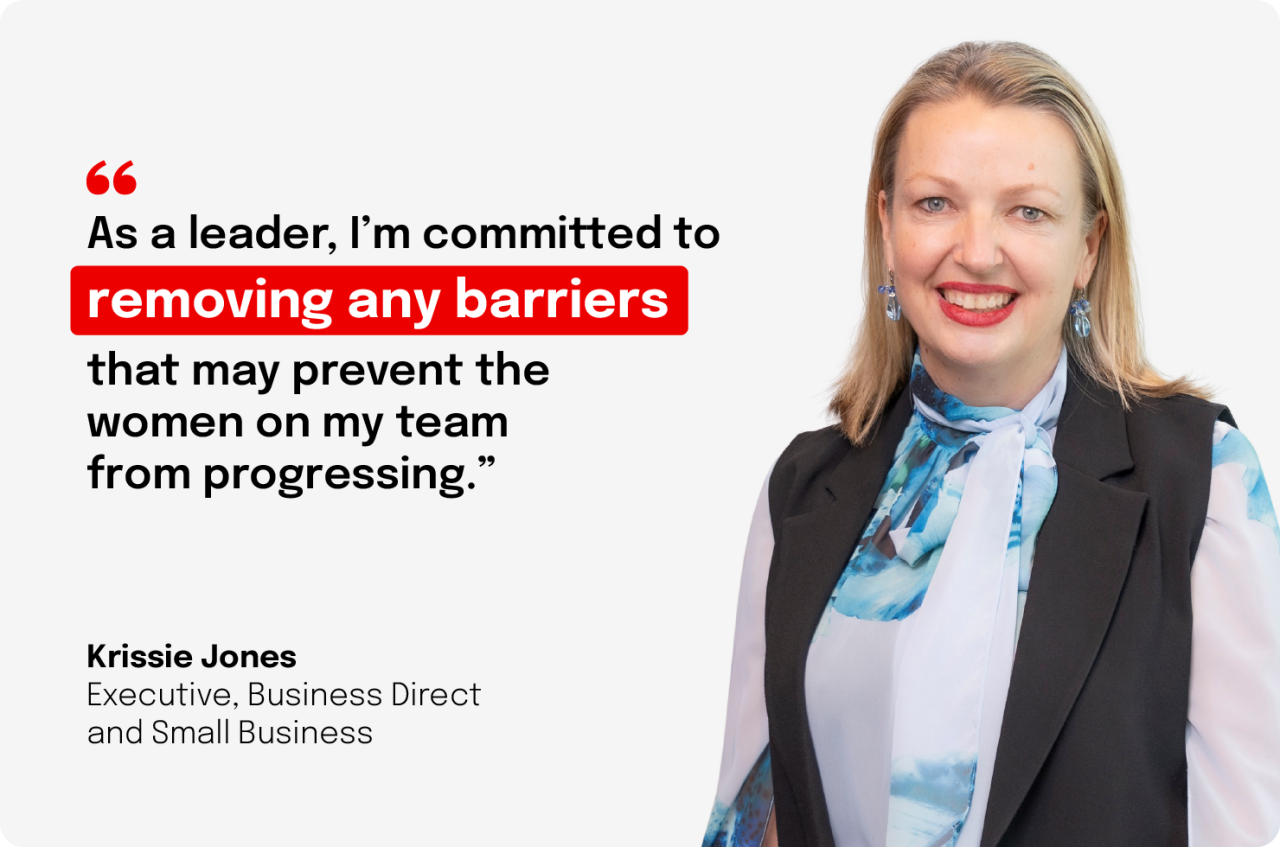
Melisa Hepworth, Executive Business Execution, Regional & Agribusiness
While not seeking to minimise the challenges thrown up by the pandemic, it did bring one change that’s truly benefitted many women. Being thrown into impromptu work-from-home arrangements illuminated the juggle working mothers perform every day and broadened many people’s views on flexible and remote working. Acknowledging the many people – including essential workers – who couldn’t work remotely, as someone who was supporting national regional and rural businesses from the Sunshine Coast pre-COVID, seeing flexible work become the norm was fantastic. It’s allowing more women living in regional Australia to put themselves forward for leadership opportunities and to be taken seriously when they do. That would have been unthinkable even a decade ago, which is why it’s important to keep telling our stories. We need women to be able to see and hear and feel what’s become possible and build the confidence to back themselves.
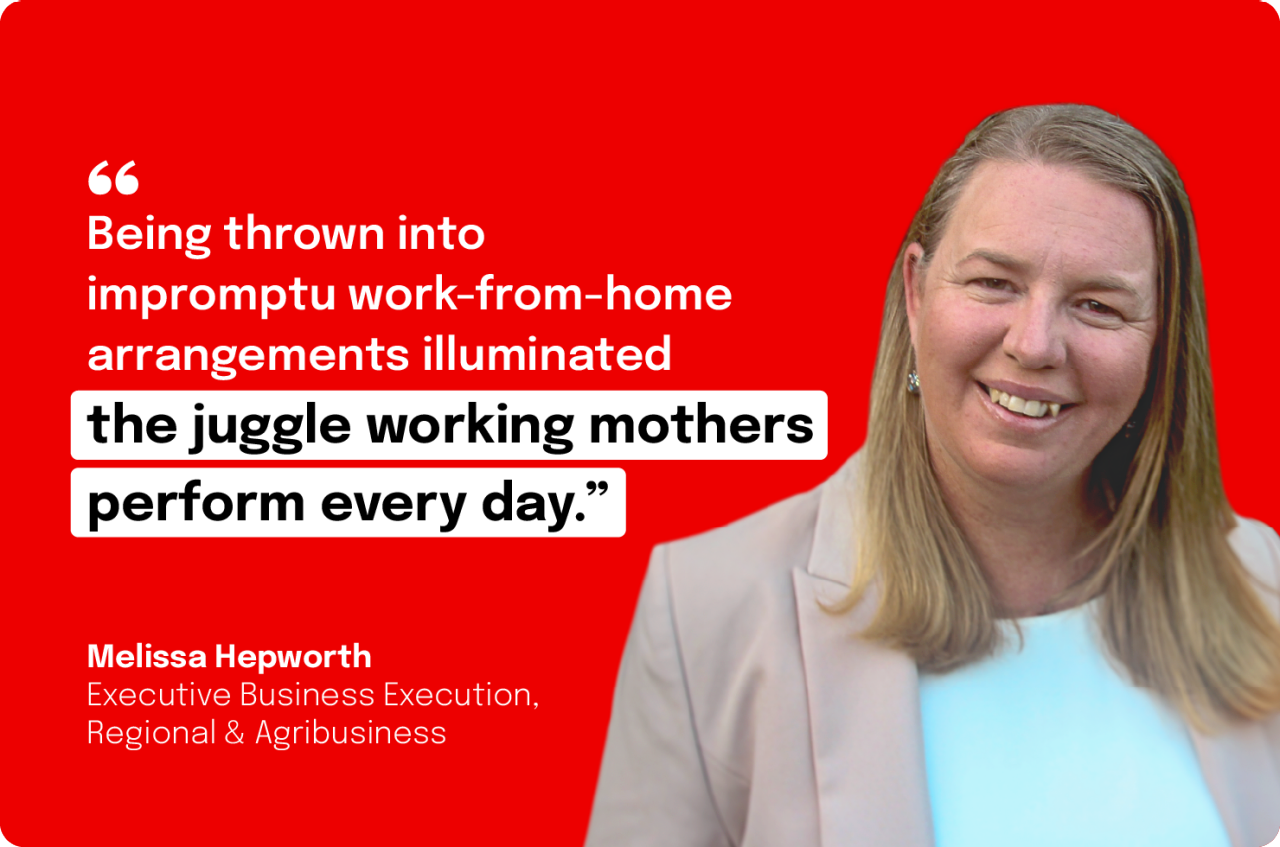
Hannah Oakhill, Executive, nabtrade
Paid parental leave for both genders was the absolute exception 15 years ago but now it’s the norm. That’s helped shatter the perception that, once you’ve had children, you’re on the part-time track. It’s been hugely beneficial for women but, unfortunately, they’re still hampered by lack of access to quality, affordable childcare. Participating in the workforce at the level they’d like to can be difficult because it’s not worth it economically, in the short term at least. Making childcare more accessible and convenient would change that and allow more women to maintain the continuity they need for career advancement. It’s something I’m really passionate about, along with giving younger women in my team the confidence that they’ll be able to juggle family and work, if that’s their intent.
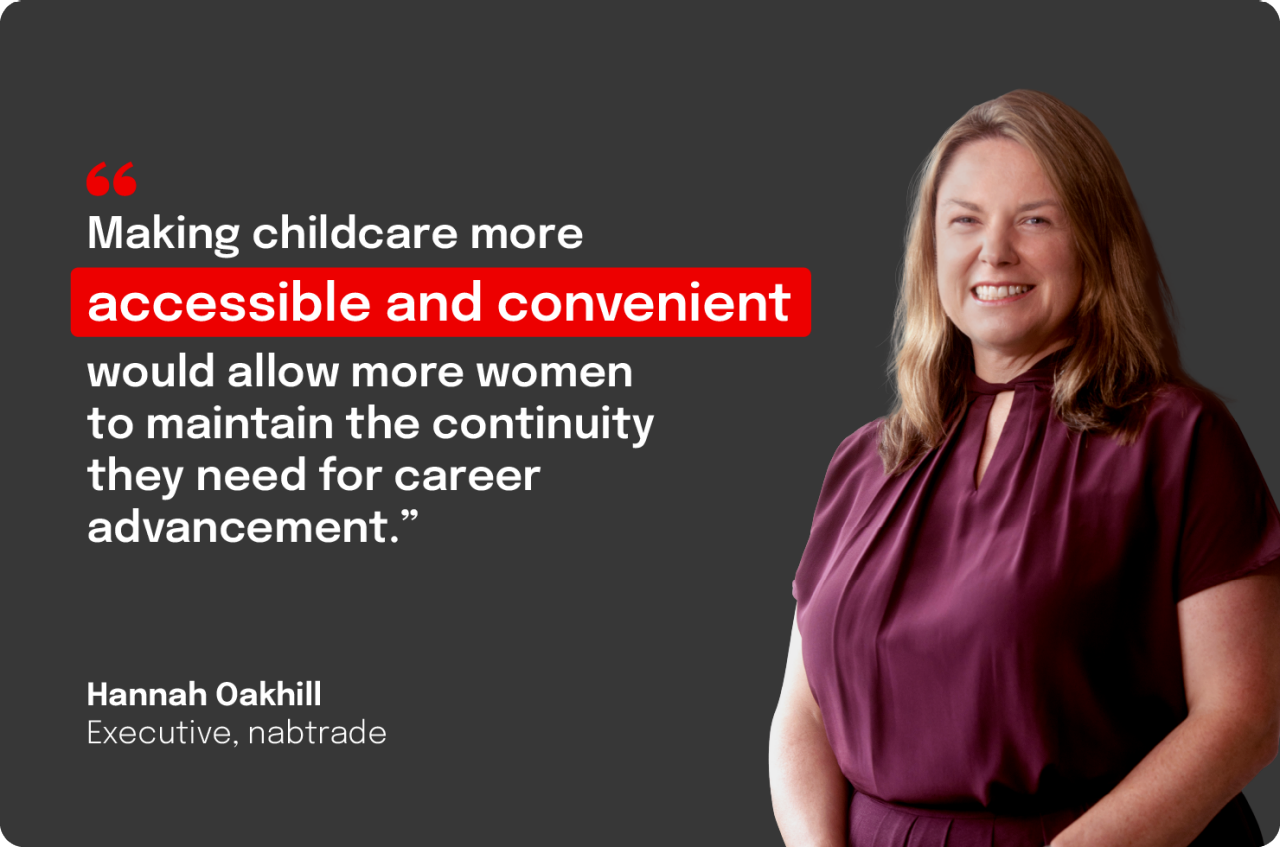
Elli Harper, Specialised Banking Executive, Transaction Banking
A significant win for women is the number of organisations, including NAB, taking deliberate steps to close the gender pay gap – and to publicly report the steps they’re taking. It’s something that was talked about for a long time but now we’re seeing proper, unambiguous guidelines and budgets being assigned. It’s a big, bold step forward. At an individual level, getting back into the workforce again after taking significant time off can feel like a big, bold step too, and it’s one many women struggle to take. I know how it feels because I’ve been there myself. That’s why coaching women in my network to make that transition successfully is something I’m passionate about. Seeing them learn to articulate their value proposition and gain the confidence to continue their career journeys is incredibly rewarding.
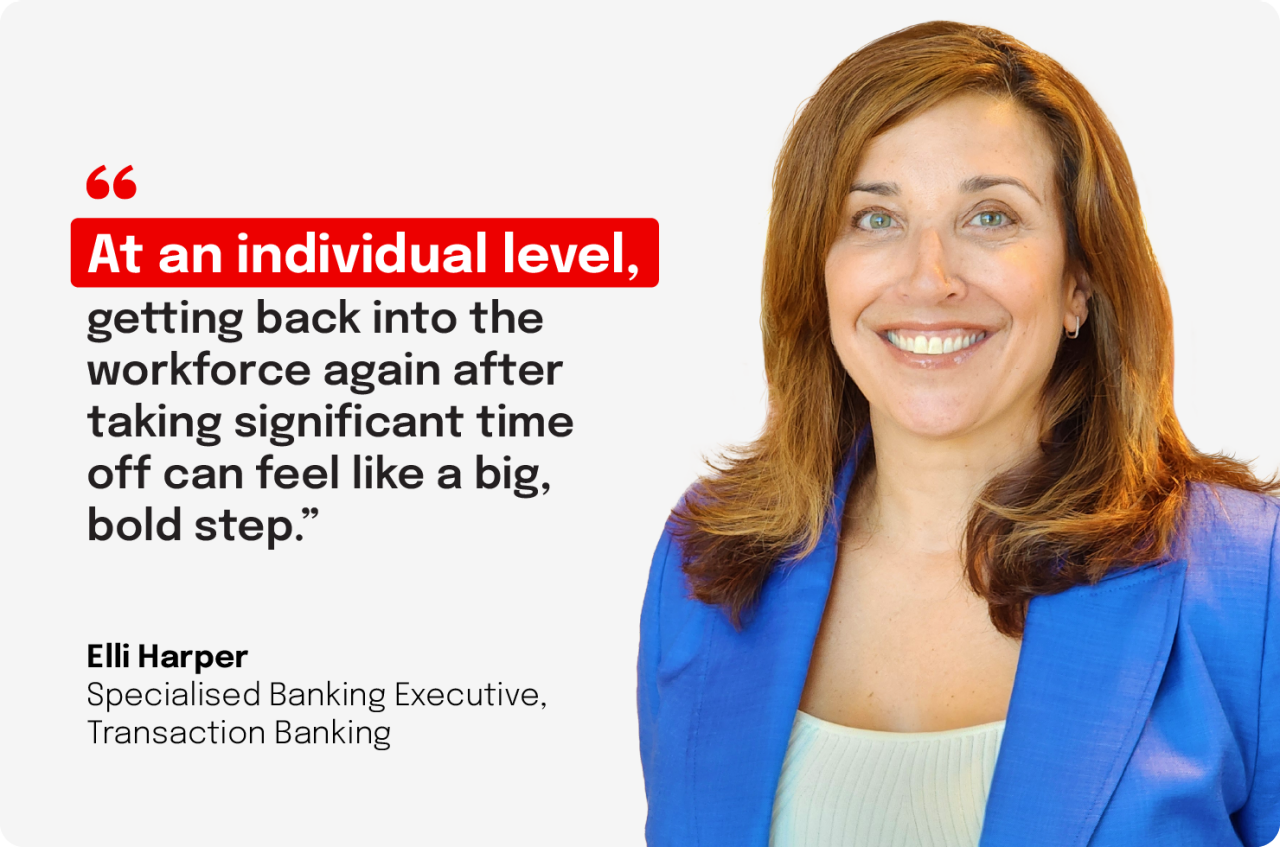
Kris Jones, Health Banking Executive
The introduction of a national paid parental leave scheme in 2011 really recognised the value of women’s contribution to the workforce in Australia – I’d have loved for it to have been around when I had my daughters. It’s helped bring about some desperately needed work-life balance. Seeing so many employers taking it a step further by making their parental leave entitlements non-gender specific is great. I’m also heartened by what large organisations like NAB are doing to address the gender-related super gap – employer-funded payments during unpaid parental leave will reduce it significantly. The best thing we can do now to keep moving in the right direction is to normalise these developments and make it a given that responsibility for caring for children and ageing parents is shared between men and women.
